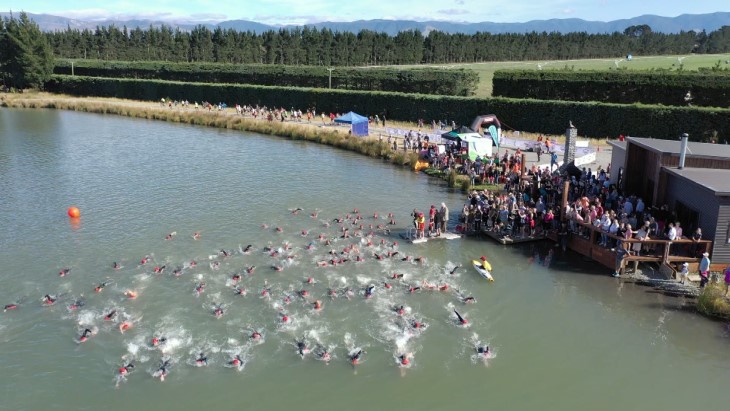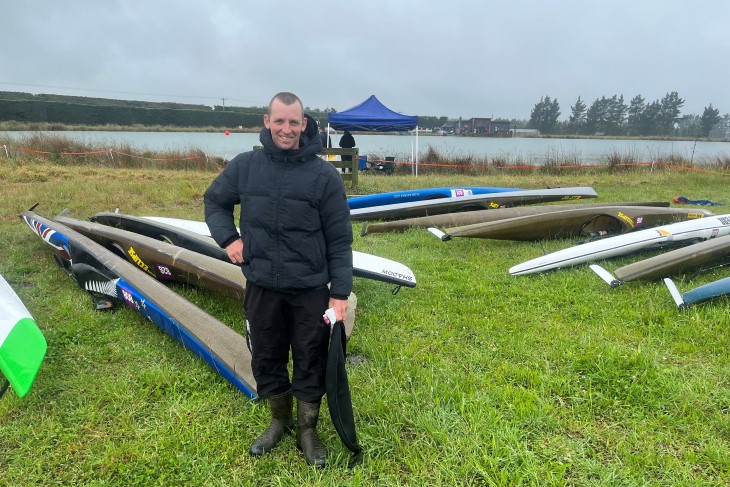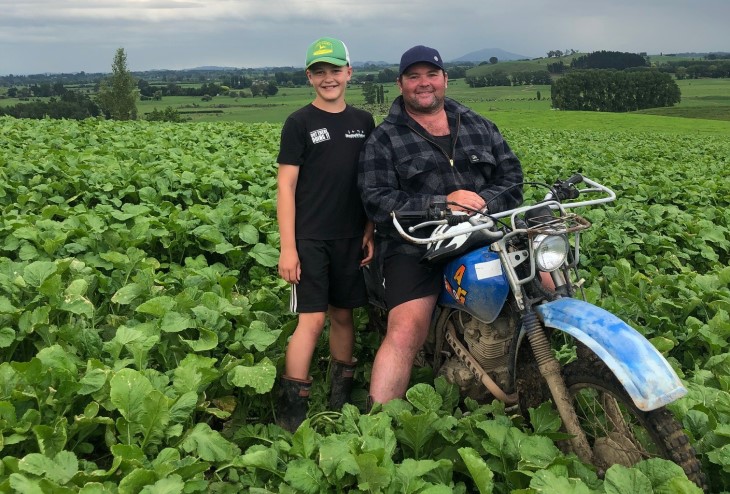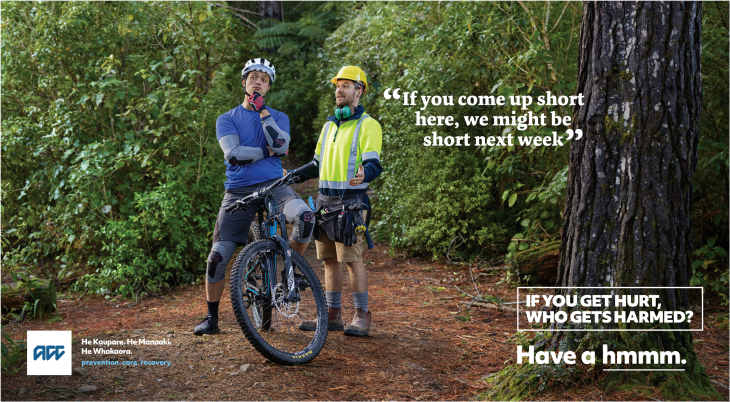“I need to empty my bucket each week”

Prioritising mental wellbeing on our farms is an essential part of keeping our farmers safe from fatigue and burnout. Farmer Stu Dyer shares his advice on how he does just that, and how other farmers can too.
North Canterbury farmer Stu Dyer says it’s important for him to “empty his bucket” to look after his mental wellbeing.
The 35-year-old has been reading Taranaki farmer Kane Brisco’s book Tools For The Top Paddock which outlines methods for dealing with the mental and physical strains of life on the land.
“Kane talks about his bucket of resilience,” says Dyer. “If you keep putting water into the bucket without tipping anything out then the bucket overflows and then things turn to s… .
“I use my training and these events to empty a bit out of the bucket and clear my mind.”
Dyer, who share milks on an 800-cow dairy farm, has taken up the challenge of multisport to give himself something away from the farm to look forward to. He completed the OxMan on Sunday in the inaugural multisport event.
The event took place on the quiet country roads of North Canterbury, on and around the property of Geoff and Rochelle Spark’s farm in Eyrewell. It included a 42km bike, 14km run and 10km kayak.

Supporting one another
“I love this event. It’s great to support a local event and a local farmer in Geoff. A few of us are doing the Longest Day in the Coast to Coast in February so this is good preparation for that.
“There is always bit of banter going, and a bit of competition without saying there is competition.”
Dyer says when you hit the finish line, it’s a great feeling of accomplishment. “She’s a hard slog. I was pretty happy when it was all over,” he says with a laugh.
He says the training and competing with farmers is great because you realise that everyone is facing the same challenges and stresses. “Just having a yarn to them and getting it off your chest makes you feel better,” he says.
“It makes you realise that you are not the only one dealing with these challenges and we can all help each other. There may be something that your mates are doing that is working and you can implement yourself on your own farm – that social time is hugely important for farmers.”
He says farming is a job that never stops. There is always something to do and that stress flows onto your family. Experts say all farmers need to find ways to keep their lives in balance.
A study released in 2020 by rural wellbeing programme Farmstrong found that 60 percent of injured farmers linked their accident to diminished wellbeing. That includes things like fatigue, isolation and stress.
“If you've got some activity in your life off the farm, you tend to be more positive,” Spark says. “I believe in live well, farm well. If you get your life in balance, you’re in a far better space to cope with all the things we face as farmers.”
Dyer says they haven’t had any significant accidents on his farm, but his aware of the dangers of working under stress.
“Accidents can happen so easily on the farm,” he says. “It only takes a split second to not be concentrating and something goes wrong. That one moment can lead to pretty serious consequences particularly when you are working with machinery. You want to be on the ball and fresh all the time.

Stu with his family after he finished the OxMan
“When you are fatigued or under stress, you are not thinking clearly and that is when accidents happen.”
Investing in change
In 2021 ACC accepted 22,179 new claims for farming-related injuries, these came at a cost of $114 million to help people recover
ACC co-funds the Farmstrong programme to help prevent injury across Aotearoa.
“Farmers tend to be good at looking after their animals and their crops but not so good at looking after themselves,” says Virginia Burton-Konia, from the ACC Levy and Workplace Safety team.
“We know from the work Farmstrong has done that poor wellbeing plays a big role in an increased risk of injuries so it's great to see these farmers coming together to support each other.” Dyer says they apply the principles of Farmstrong every day on their dairy farm.
“We run a five and two roster on our farm so we are always ensuring that our team is not getting burned out. We keep tabs on that as well. If we find that people are starting to make mistakes or getting grumpy we nip them in the bud early so they don’t end up causing bigger problems further down the track.”
Dyer says with experience he has learned how to prioritise his wellbeing. “My advice is sleep is important,” he says. “You need 7 -8 hours per night. If that means going to bed at 8pm then you need to do it. I definitely notice when I don’t get that sleep – I don’t function too well that next day.
“Eating good food is also so key. People take it for granted but you’ve got to put the right food in to be able to work hard as farmers.
“Getting off the farm has worked well for me as well – you need that time to refresh.”
Farmstrong’s Five Ways to Wellbeing
- Staying connected with mates
- Keeping active
- Taking notice and enjoy the simple things in life
- Learning new things to keep fresh
- Giving back to friends and community.




